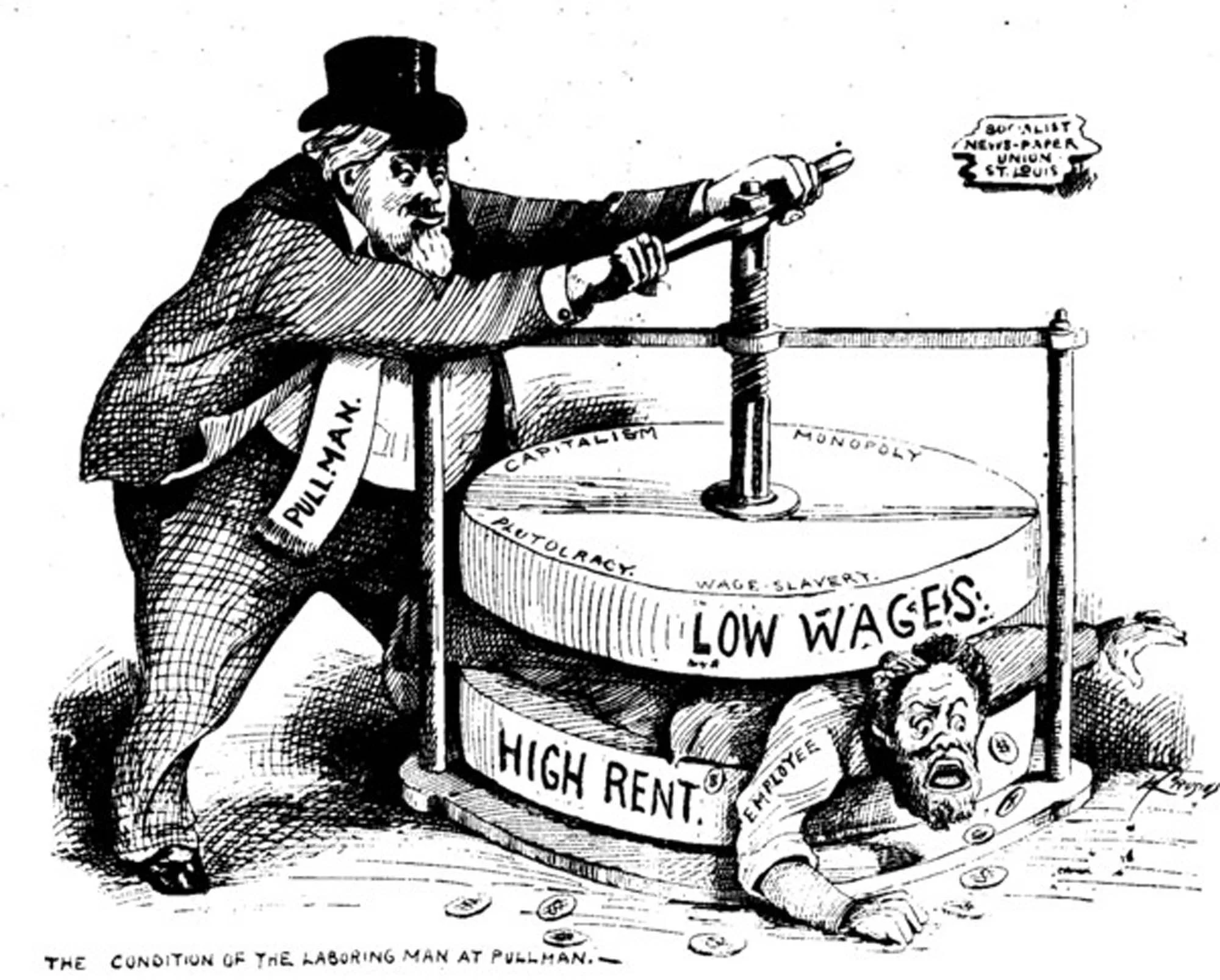45: Welcome to the Machine?
“I worship individuals for their highest possibilities as individuals, and I loathe humanity, for its failure to live up to these possibilities.”- Ayn Rand
As we recognize the echo chambers and downfalls of algorithmic biases embedded within the media landscape of today from Apple news, Instagram, TikTok, to X and beyond, it is more important than ever to go out of our way to consume long-form media that challenges our worldviews and potential blindspots. Even if only for a way to strengthen our own arguments for the sake of that stubborn little ego of ours, ha! I’m kidding (a little bit).
As an avid reader with nonfiction being my top genre in 2024 (add me on goodreads, I love to stalk book diets and opinionated reviews @groovygab), I sometimes go out of my way to read well-known or renowned authors whose views oppose my own. Queue Ayn Rand’s Anthem.
Ayn Rand is famously pro-laissez-faire Capitalism, advocating for Objectivism, which “rejects any form of collectivism, such as fascism or socialism. It also rejects the current ‘mixed economy’ notion that the government should regulate the economy and redistribute wealth.”
That’s a lot of -ism’s.
She argued that a society built around the structure of modern human values, focused on individual autonomy and self-interest, would provide fertile ground for the ever-growing economic system envisioned by advocates for infinite “progress”.
“‘Rationality is man’s basic virtue, and his three fundamental values are: reason, purpose, self-esteem. Man--every man--is an end in himself, not a means to the ends of others; he must live for his own sake, neither sacrificing himself to others nor sacrificing others to himself; he must work for his rational self-interest, with the achievement of his own happiness as the highest moral purpose of his life.’ Thus Objectivism rejects any form of altruism--the claim that morality consists in living for others or for society.”
The idea of rejecting altruism and a moralistic structure of governing economic systems stands in direct contrast to liberal desire for welfare programs, socialized medicine, reparations, etc. As a progressive leftist who advocates Democratic Socialism with the facts and experiences I have so far absorbed in my short (and sometimes idealistic) life, I disagree with Ayn Rand while having deep sympathy for her grievances after leaving Communist Russia. I can imagine that many of you do, too.
Let’s get a lay of the land. Laissez-faire capitalism is an economic philosophy of free market Capitalism that opposes government intervention. Some examples include Singapore, Switzerland, and Hong Kong. Democratic socialism rejects capitalism and seeks to establish a decentralized socialist economic system within a democratically run government. Some examples include France, Sweden, and the UK. Bernie Sanders identifies as a democratic socialist. <3 The United States has traditionally had a mixed capitalist and market-based economy.
Bernie Sanders on May Day 2025, Photo by Emma Lee with WHYY.
In Anthem, Rand denounces people’s passive acceptance of collectivism: “[...]by refusing to admit to themselves the nature of that which they are accepting; the people who support plans specifically designed to achieve serfdom, but hide behind the empty assertion that they are lovers of freedom, with no concrete meaning attached to the word; the people who believe that the content of ideas need not be examined, that principles need not be defined, and that facts can be eliminated by keeping one’s eyes shut. They expect, when they find themselves in a world of bloody ruins and concentration camps, to escape moral responsibility by wailing: ‘But I didn’t mean this!’”(16)
I read this mid-April 2025, and boy oh boy, why does it sound like she is railing against the brainwashed masses who elected (or thought they elected) our current fascist oligarchy under the pretense of an improved capitalist economy and the disturbing rise of white nationalism disguised as patriotism that is now sending people to an El Salvadorian gulag without due process?
In a recent song by Jesse Welles called The Poor, he raspingly sings alongside his acoustic guitar and harmonica in proper Bob Dylan ode:
If you worked a little harder
Then you'd have a lot more
So the blame and the shame’s on you
For being so damn poor
[Post-Chorus]
It ain’t the banks
And it ain’t the taxes
It ain’t the pay day loans and the high rent homes
And predatory fees and practices
[Verse 3]
Wave your dumb flag
Whatever it means
But you should ask yourself
When it comes to health
Are the poor really all that free?
Are the poor really all that free? Our current president once said he loved the poorly educated, and there is clear, historical overlap between poverty and education level.
When 34-60% of Americans live paycheck to paycheck, are we free? Out of 38 “developed” countries of the global north in the OECD (Organization for Economic Co-operation and Development), the United States has the second highest poverty rate behind Costa Rica, even though its GDP is over 300 times larger than Costa Rica’s.
Why do we have one of the highest poverty rates of the developed world when we are the richest country in the world? It is not because we don’t have the means to improve it, our government just continually chooses not to.
“And the day will come when I shall break all the chains of the earth, and raze the cities of the enslaved, and my home will become the capital of a world where each man will be free to exist for his own sake.”(Rand 104)
Ayn Rand’s Anthem is a novella of a man living under totalitarian collectivism who sees the deadened souls of his fellow men functioning like robots for a perceived “greater good” and rebels. He pursues a woman he isn’t even supposed to look at without government organization, he defies rules by spending time alone and finding an underground tunnel with old electric he fashions into a lightbulb in a candlelit world. When he presents electricity to the councils, he is given a treasonous death sentence and runs away.
He escapes to the wilderness beyond the bounds of government intervention with the woman who followed him there and begins a utopian society under the pursuit of life, liberty, and the protection of property for the sake of individualism. John Locke and Adam Smith would presumably root for this fictional man, with Rand’s Anthem being the egoic word: I. But autonomy and individualism are not synonymous.
In Silvia Federici’s Caliban and the Witch: Women, the Body, and Primitive Accumulation, she argues that “Capitalism, as a social-economic system, is necessarily committed to racism and sexism. For capitalism must justify and mystify the contradictions built into its social relations--the promise of freedom vs. the reality of widespread coercion, and the promise of prosperity vs. the widespread penury--by denigrating the ‘nature’ of those it exploits: women, colonial subjects, the descendants of African slaves, the immigrants displaced by globalization.”(17)
Woodcut of witches conjuring a shower of rain. In Ulrich Molitor, De Lamiies et Pythonicis Mulieribus (On Female Sorcerers and Soothsayers) (1489).{2}
With this in mind, it can be argued that Rand’s idea of Objectivism did not take into account centuries of sexist patriarchy, racial slavery (especially in the U.S.), and native genocide that did not allow individuals to rise up in an idealistic meritocracy of equal opportunity. The playing field was never levelled enough for capitalism to continually function for the many without government intervention to make up for the greed of the few. In Anthem, the main character escapes to a clean slate with no other people around--from dystopia to utopia--but a clean slate does not exist outside of fiction (unless you consider the Bible’s book of Genesis nonfiction, though we notoriously messed that up too).
'Paradise Lost' by Milton, 19th-century illustration. Adam and Eve being cast out of the Garden of Eden by the archangel Michael.
As Orwell argued, absolute power corrupts absolutely. So, who is supposed to check who? How can a society with vested interests in forward progress and the accumulation of wealth willfully and altruistically achieve some kind of equity?
Ayn Rand’s Anthem ends with her main character laying claim to an abandoned home in the wilderness, proclaiming his sovereignty to declare the land his, and to create a community of like-minded individuals led by him. The part of the story that isn’t explored is the part where the foundational strongman inevitably accumulates wealth or prestige--does he give any back to his people? Does he keep it all to himself because of a perception of meritocracy and the arbitrary idea that the land was his because he found it? Finders, keepers? Feudalism led to capitalism led to…whatever it is we’re seeing now.
“We can see, in other words, that the human body and not the steam engine, and not even the clock, was the first machine developed by capitalism.”(Federici 146)
Is it simply a cycle? Does capitalism lead to discontent that leads to socialism that leads to discontent that starts the cycle all over? Is that how pseudo-spiritualist granola girls went so far left they came back around to the right and became anti-vaxxer pronatalists? Does any government progress quickly enough for this to happen or is there some idealistic future in which we find a way to settle somewhere in the middle that works for everyone? Will anything ever work for everyone?
This leads to the classic essentialism vs. constructivism argument: are some people born to lead or are leaders made? Are some people born to follow? Are some cultures so different that there is no such thing as an ideal, globalized, integrated human way of life? If we made one big hippie commune where everyone’s gifts were rewarded in proportion to their contributions to bettering our quality of life and the idea of reciprocity, would we finally know peace?
In Welcome to the Monkey House by Kurt Vonnegut, the marrow of our existential harangue is proposed: “The question is, rather, whether or not America is to enter a new and distressing phase of history where men no longer pursue happiness but buy it.”(192)
Enter Techno-feudalism.
A note to my reader:
Thank you for reading. I wrote this mostly for myself to work through how I was feeling by actively researching the questions I have about the state of affairs in relation to a fairly simple book like Anthem by Ayn Rand. I have never taken more than a basic economics course in college. I am no expert, but I am a 28 year old woman and concerned citizen who is trying to understand how we got here in an increasingly confusing political landscape. I didn’t even know there was a difference between social democracy and democratic socialism until like…yesterday? Lol. The more I learn, the more I realize I don’t know.
I don’t think anyone reads my blog really, but if you do, please comment below to let me know you’re here. If I got any definitions or facts wrong, please do correct me below and I will be happy to learn and edit accordingly. Knowledge is power.
With love from the Outer Banks, Gabby <3







